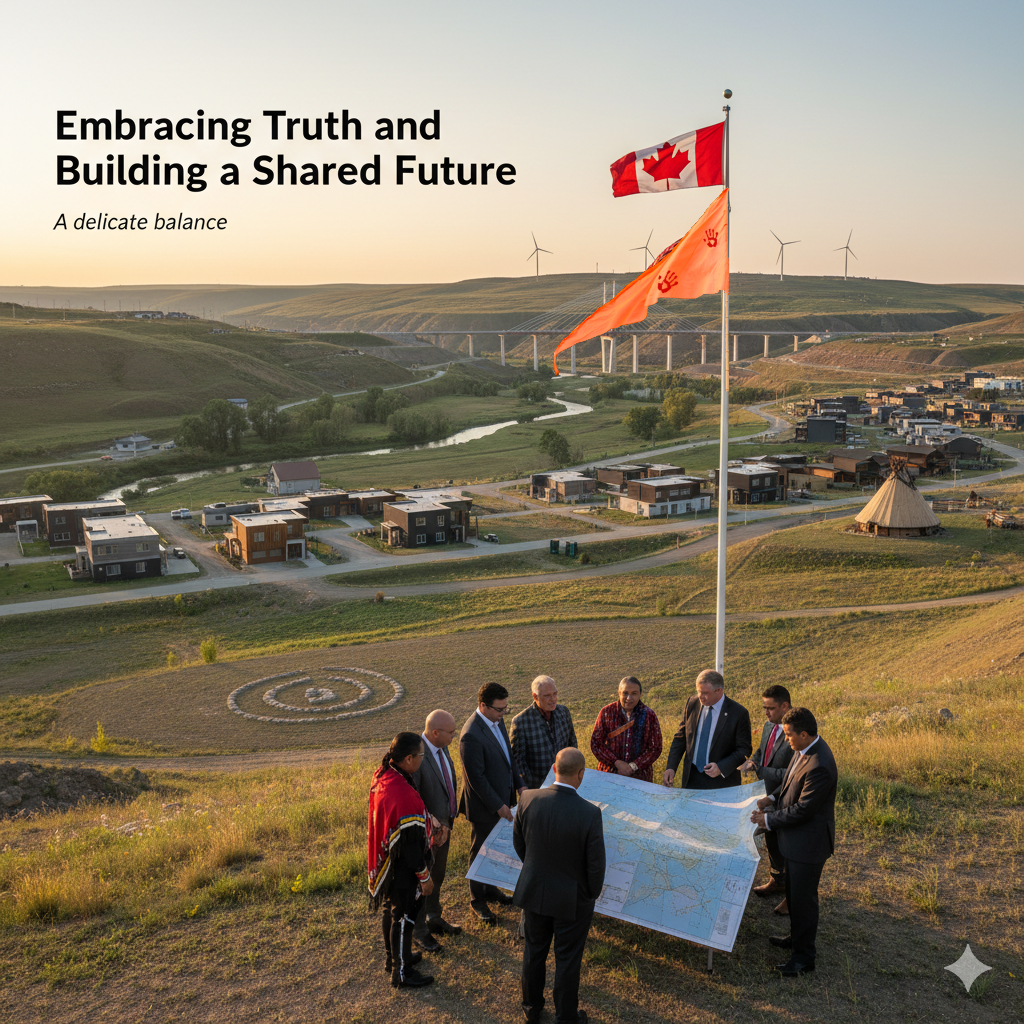
Embracing Truth and Building a Shared Future: A Look at Reconciliation in Canada
Share

Embracing Truth and Building a Shared Future: A Look at Reconciliation in Canada
Every year, September 30th marks the National Day for Truth and Reconciliation in Canada, a vital occasion for all Canadians to reflect on the painful legacy of residential schools and commit to the ongoing journey of reconciliation. This day is a poignant reminder of the strength and resilience of Indigenous peoples and the crucial role that governments, communities, and individuals play in fostering a more just and equitable future.
The Path to Reconciliation: Government Initiatives and Advocacy
Over recent years, Canadian governments, both federal and provincial, have taken significant steps to acknowledge historical wrongs and advance Indigenous rights, though the pace and depth of action vary.
In New Brunswick, Premier Susan Holt issued a statement today in observance of the National Day for Truth and Reconciliation. While the full scope of any new policy announcements may unfold in the days following, such statements serve as a crucial public acknowledgement of the day's significance—honoring survivors, remembering those lost, and committing to the province's role in advancing the Calls to Action. This commitment is particularly important in New Brunswick, where the relationship between the government and the Wolastoqey Nation, in particular concerning a major Aboriginal title claim, remains a key focal point for reconciliation efforts.
Meanwhile, other provinces continue to take successful, concrete steps forward. For example, British Columbia has been recognized for its work in implementing the United Nations Declaration on the Rights of Indigenous Peoples (UNDRIP) legislation, which requires the provincial government to align its laws with the Declaration. Manitoba has made significant investments in areas like Indigenous language education and culturally appropriate mental health services. These examples highlight diverse yet successful approaches—from legislative alignment to direct community investment—that provincial governments can champion.
Interprovincial Collaboration: A Stronger Foundation for All
Moving forward, the power of interprovincial collaboration cannot be overstated. When provinces work together, sharing successful reconciliation strategies and coordinating efforts, they can create a more cohesive and impactful approach across the country. Provinces could collectively commit to upholding UNDRIP as a shared standard for all resource development and land-use planning. They can collaborate on educational curricula that promote a deeper understanding of Indigenous cultures and histories nationwide, transcending regional political differences. By working in concert, provinces can ensure that reconciliation is not just a patchwork of individual initiatives, but a united national commitment that accelerates progress towards a better future for all Canadians.
"Build Canada" and the Protection of Heritage: A Delicate Balance
As Canada continues to grow and develop, often through ambitious infrastructure projects under a "Build Canada" approach, it becomes even more critical to engage Indigenous communities at every stage of planning and implementation. The push to fast-track major projects—a shared goal among First Ministers to strengthen the economy—presents a direct and significant threat to historic and, often, unknown ancient Indigenous sites.
These sites are not merely archaeological curiosities; they are living testaments to millennia of rich cultural heritage, spiritual practices, and ancestral connections. Prioritizing development without robust, Nation-to-Nation engagement on land use risks repeating the destructive patterns of the past, permanently erasing irreplaceable cultural records. The "Build Canada" approach must therefore be reconciled with the fundamental principle that reconciliation is not a barrier to progress, but its essential foundation. True nation-building requires that Indigenous knowledge, jurisdiction, and the protection of heritage are embedded from the initial planning stages, ensuring that we build a future that honours the past for all Canadians.
